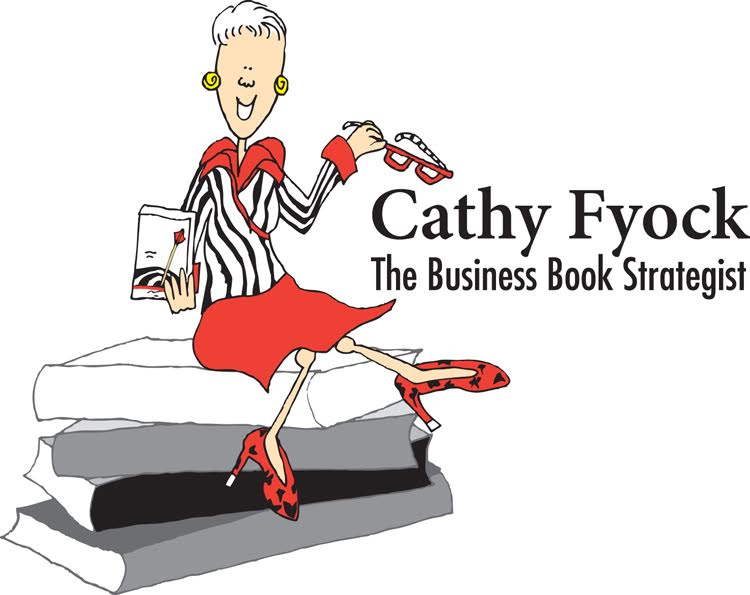Sometimes I think I oversell the value of writing a book. I often say that your book is “magic” and can do supernatural things for your career or business.
And then, when I speak with new authors and hear their transformational stories, I think perhaps I haven’t sold the ROI of writing a book enough!
There are the obvious benefits of having written a book: increased revenue streams, heightened visibility, wider reach, and higher perceived value (generating the ability to increase fees for products and services, especially for consulting, coaching, and speaking). A book gives you greater credibility; it is your calling card or credential. A book often helps you close that sale for your product or service. I know many authors who no longer need a press kit; they simply gift their book. David Adkisson, author of Horseshoes vs. Chess, a book for Chamber of Commerce professionals, shares that he’s traveling to Palm Springs at the invitation of the US Chamber to present his book at a leadership conference, and that he’ll be on the faculty of the US Chamber Institute for Organizational Management at the University of Georgia. “I’m still getting invitations to speak at various conferences,” he states.
A book carries more gravitas than a speech, an article, a blog, a podcast, or any other vehicle for your intellectual property. Perhaps it is because there are so many people who would love to write a book, but there are so few who actually do it. Writing a book is hard work.
Most importantly, however, writing your book changes YOU. Authorship is transformational. Authors with ghostwriters are missing an important benefit of authorship. And here’s why:
• By reading and researching your topic, your expertise is gleaned and honed. By collating and discerning the important from the nonessential, your expertise is heightened.
• Each time you struggle with finding the precise word, the perfect phrase, and ideal metaphor you strengthen your hold on your intellectual property (IP). By coining a phrase, creating a quote, or labeling a part of the process, you are claiming ownership of your IP.
Even before finishing her book, Ruth Rathblott, author of the forthcoming book Singlehandedly, has found that she is gaining more confidence and clarity in her platform of physical diversity. Similarly, Farah Harris, author of the forthcoming book The Color of Emotional Intelligence, has found a growing interest in those awaiting her new book (from someone who merely mentioned Farah and her book in a LinkedIn post). As of this writing she has 56 enthusiastic fans who have signed up to be part of her launch team.
You are the author that “wrote the book.” As other perceive you differently, you begin to see yourself differently. Your confidence is strengthened. Hardy Smith, author of the new book Stop the Non Profit Board Blame Game, shared with me at the NSA Winter Conference that writing his book has been a game changer. His book is his credential; being the author of the book is now part of his identity. He books more business because he is the expert who wrote the book.
As you understand the importance of what you share with others and as others thank you for the help you provide, you bolster your own self-efficacy. Hardy says that with each testimonial, positive Amazon review, and each book sale he experiences a growing satisfaction and sense of confidence.
Additionally, there are many experts who struggle with imposter syndrome, yet through authorship, the expert who writes must confront their negative voice, the internal editor, the critic, or, as Steven Pressfield states in his book The War of Art—the voice of Resistance. The writer, in publishing the book, ultimately triumphs over that negative voice that says “you are not enough” or “who are you to write this book?”
Writing a book is a pathway to self-discovery. It aligns you with your mission and purpose, and is the full documentation of how the life you have lived has created a life of purpose. Writing your book is holy work.
Mark Kenny, author of The Hippo Solution, says that while having a book has helped his business, the value went far beyond that. It was the commitment to believe in himself to finally write and complete his first book that was life changing.
Aimee Broadhurst is astonished at the reception from her first book and workbook, The ERG Handbook. She’s not only on a path to offering multiple boot camps and certifications for ERG professionals since the book’s publication, but she feels that she has started a meaningful movement based out of her passion for her work in this area.
As a result of authorship, I hope that every author can proudly state:
“I am changing the world, one word at a time.”
I would love to hear about YOUR story of transformation. How has writing your book changed you, your business, or your life? Please write me at Cathy@CathyFyock.com, or to schedule a call.

